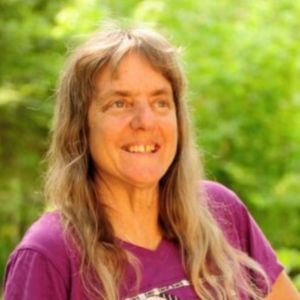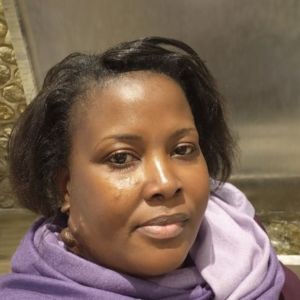This week we welcome guest bloggers and Humentum members – Mobility International USA. Keep reading for an inside look on disability-inclusive development.
Locally-led development and humanitarian assistance are imperative to eliminate poverty and injustices, enhance resilience and ownership, and build an equitable world. But without a disability lens, we will not achieve our goal.
Disability-led development must be at the forefront of these discussions. This will help build recognition among local leaders in the community that effective and inclusive development requires people with disabilities are at the decision-making table, giving direction and designing interventions.
The “locally-led, disability-led” strategy embraces ownership by the disabled groups, and it has a greater chance of sustainability and achievable outcomes. It seeks to change systems that have historically discriminated against disabled people. This approach recognizes that disabled people are capable leaders who are well-equipped to change those systems, and that organizations led by disabled people (also known as Disabled People’s Organizations or DPOs) have a critical role in the locally-led approach.
A disability-led organization means that the organization is run by staff and leaders with disabilities, not just for people with disabilities.
Placing disability-inclusive development at the forefront
While organizations that are not led by people with disabilities may still have an important role to play in providing valuable services to the disability community, this blog is focused specifically on the importance of people with disabilities themselves leading and making decisions for locally-designed projects. This includes advising on necessary funding mechanisms, monitoring implementation, and influencing policy.
Trusting local organizations to take the lead must involve giving ownership and leadership to organizations that are led by people with disabilities based on principles of dignity, respect, and fairness. This includes partnering with local DPOs as implementing partners, and supporting their efforts to consult with other local organizations to develop project proposals, strategies, and budgets. Many funding sources now require that at least 30% of the budget go to in-country costs, which should, to the extent possible, be directed to disabled persons organizations.
Because many disabled people’s organizations have historically not had the same participation or funding as non-disability organizations, it is important to have flexible funding streams so that organizations with smaller budgets can still partner with you. Funders should also build in technical support to build the capacity of smaller, grassroots organizations, who often work with communities historically marginalized from development interventions, due to location (i.e. rural areas) and limited financial resources.
There are many ways to engage in disability-led development. One is to work with disability-led organizations as subcontractors (perhaps as primary partners) or with individual consultants who have expertise in disability inclusion in addition to identifying as being disabled themselves.
To be even more innovative, invite disabled women’s organizations and other disabled people’s organizations to apply for unsolicited proposals. If you have a certain amount of funding available, approach a DPO to ask how they would advise spending it, and if appropriate to your organization, invite the DPO to create its own budget.
Core principles of disability-led development
Budget for inclusion. As a best practice, international development project budgets should always include a line item for disability accommodations, even if the project is not specifically focused on disability. And in those cases, we recommend allocating 3% of the admin budget and 5% of the program budget to disability accommodations so that there are funds available for sign language interpretation, personal assistance services, accessible transportation rental, accessible materials, and other products or services as needed. (If your project is disability-focused, a greater percentage may be appropriate.)
Ensure that strong financial guidelines are shared with organizations; this will ensure that organizations are transparent and responsible for the smooth disbursement of funds and accounting for those funds, including all reporting.
Recognize local expertise. DPOs in the Global North can also learn much from DPOs in the Global South, so there needs to be a humble acknowledgement that all organizations have expertise to share that can promote a broader understanding of one another’s strategies.
Compensate disabled leaders for their time spent consulting on programs. Project budgets need to compensate disabled people’s organizations for their expertise, allowing the organizations to build their own financial capacities.
Disability is a cross-cutting issue. Disability-led development should apply to ALL international development programs – not only disability-focused programs, but also those that address climate change, political participation, women’s leadership, economic empowerment, emergency response, and beyond. All programs must include a disability-led, locally-led component. With intersectionality in mind, we must also be mindful of how the disability community overlaps with LGBTQ, indigenous, refugee, and other communities.
Use a twin-track approach in your disability-inclusive development. With this approach, you may have a project that specifically focuses on engaging the disability community as its main objective (Track 1). Still, it’s also important that all of your other projects are making an intentional effort to include people with disabilities (Track 2).
Find excellent disabled people’s organizations or consultants. Consider joining MIUSA’s initiative, Excellence in Development and Disability Inclusion (EDDI, to be connected to MIUSA’s network of disabled leaders and alumni around the world. To be connected to a network of emergency response resources, learn more about the Global Alliance for Disaster Resource Acceleration (GADRA).
Disability-led development in action: spotlighting examples around the world
Local solutions, global impact (Malawi)
The Federation of Disability Organizations in Malawi (FEDOMA), an umbrella body of 12 DPOs with financial support from Bread for the World, is implementing a project aimed to promote the rights of women and girls with disabilities in Malawi. One component of this project takes an innovative approach where FEDOMA is empowering girls and women with disabilities by working with community mother groups to spearhead mainstreaming of women and girls with disabilities in decision-making in Zomba, Balaka, and Ntcheu districts.
The mother groups are amplifying the voices of girls and women with disabilities, ensuring that the perspectives and needs of girls with disabilities are not only acknowledged but actively shape the development agenda for their communities.
By leveraging these established local structures, the project goes beyond mere participation, sparking a transformative shift in attitudes towards persons with disabilities, and in particular, women with disabilities in leadership roles. This newfound inclusivity not only fosters greater participation but also lays the foundation for a resilient and strong community support system, addressing a persistent challenge faced by persons with disabilities, especially women and girls. Read more.
Women with disabilities leading the fight against gender-based violence during the pandemic
MIUSA’s 12-month project, Mobilizing Disabled Women Leaders for Inclusive Responses to Gender-Based Violence (GBV) during the COVID-19 Pandemic, was led by local partners in six countries: Brazil, Haiti, Nigeria, Mongolia, Sierra Leone, and Sri Lanka. The project aimed to mobilize disabled women as leading experts and build new partnerships with civil society and government actors who are working to address gender-based violence in their local communities. Watch the video.
Mobilizing disability & human rights leaders in Kenya, Malawi, Nigeria, and Zambia
As part of a partnership with the National Democratic Institute (NDI), MIUSA identified local disabled women in four countries – Kenya, Nigeria, Malawi, and Zambia – to serve as consultants on Gender, Disability Inclusion and Access. Together, these consultants and NDI staff in each project country are engaging with leading disability rights organizations and development organizations to devise strategies for advancing inclusive COVID-19 response and recovery efforts. Learn more.
Language notes from the authors
In this article, the authors use the terms “disabled person” and “person with a disability” throughout and interchangeably.
Disabled People’s Organizations (DPOs) are also known as Organizations of Persons with Disabilities (OPDs).
Disability refers to all types of disabilities, including but not limited to: physical, intellectual, developmental, psychosocial, chronic health, learning, sensory, and other types of disabilities. Some disabilities are apparent, while others are non-apparent.
Over the last several years, the sector has continued to grow and evolve, and conversations around operationalizing locally-led development are here to stay. During this time, individuals, organizations, and networks across our sector have contributed fresh, alternative narratives, effectively ‘flipping the script’ on traditional approaches. In 2024, Humentum is elevating these new messages, and examining how new narratives will impact the sector now and in the future. Register for the series below.


